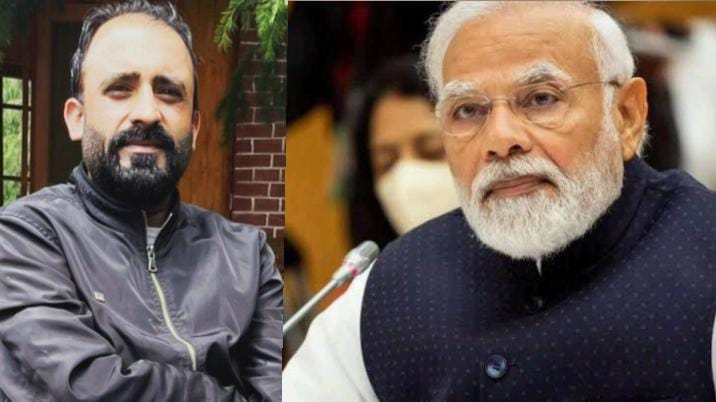
SYED IRFAN HASHMI
The leadership of Narendra Modi in India has been a subject of diverse opinions. Since taking office as Prime Minister in 2014, Narinder Modi has implemented various policies and initiatives aimed at transforming different aspects of the country. Some of the key areas where his leadership has had an impact include:
1. Economic Reforms: The Modi government has launched several initiatives to boost economic growth, such as the "Make in India" and "Digital India" campaigns. The implementation of the Goods and Services Tax (GST) has aimed to streamline the tax system and improve ease of doing business.
2. Infrastructure Development: The government has focused on developing infrastructure, including the construction of roads, highways, and the expansion of the railway network. The "Smart Cities Mission" was launched to modernize urban infrastructure and improve the quality of life in cities.
3. Foreign Policy: Modi has sought to enhance India's global standing through active diplomacy and international engagement. Initiatives such as "Act East Policy" and "Neighborhood First Policy" have aimed at strengthening relationships with neighboring countries and enhancing India's influence in the Asia-Pacific region.
4. Swachh Bharat Abhiyan: The cleanliness campaign aimed at improving sanitation and hygiene has been a significant initiative under Modi's leadership.
5. Digital Initiatives: The government has focused on promoting digital literacy and expanding access to digital services, such as the "Digital India" campaign and the push for digital payments.
6. Social Welfare Schemes: The government has introduced various social welfare schemes, including the Pradhan Mantri Jan Dhan Yojana, Pradhan Mantri Ujjwala Yojana, and Ayushman Bharat, aimed at financial inclusion, clean cooking fuel, and healthcare for the underprivileged.
Narendra Modi's leadership as Prime Minister of India has been marked by a number of ambitious initiatives and reforms aimed at transforming various aspects of the country. The government has launched programs to address issues such as infrastructure development, economic growth, digital innovation, sanitation, technology, Education and social welfare. These initiatives have been designed to propel India towards the status of a developed and progressive nation. While there have been initiatives and policies that have been praised for their potential to bring about positive change.
The concept of India becoming a superpower is a complex and multifaceted topic. As of my last knowledge update in September 2021, India has made significant progress in various fields under the leadership of Narendra Modi, and it possesses many attributes that are important for a country aspiring to be a global power. These include a large and rapidly growing economy, a young and increasingly educated population, a vibrant democracy, a diverse and innovative culture, and a growing influence in regional and global affairs.
While these initiatives have the potential to contribute to India's development and progress, it's important to note that the country still faces significant challenges in areas such as poverty, education, healthcare, environmental sustainability, and social inequality. The success of these initiatives and the overall transformation of India into a developed and progressive nation will depend on their effective implementation, as well as the ability to address these ongoing challenges. Everyone needs to come forward to support in making India as next global superpower.
Article written by Socio political Activist / Freelancer Journalist
Syed Irfan Hashmi
Email at: irfan.hashmi.syed@gmail.com
Call at: +91-9999205553